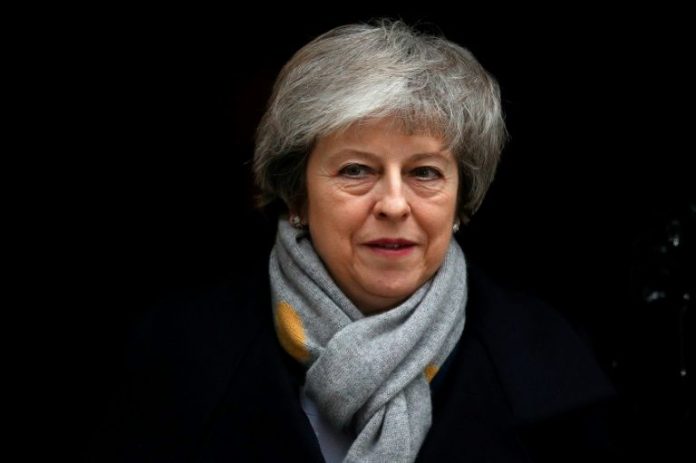Prime Minister Theresa May was expected to win a confidence vote on Wednesday despite a crushing defeat over her Brexit deal that triggered warnings of a chaotic “no-deal” divorce.
MPs on Tuesday rejected May’s deal on leaving the European Union, leaving the Brexit process in limbo with just 73 days to go before the official departure date.
May suffered the biggest government defeat in modern British history when the House of Commons rejected by 432 votes to 202 the deal she struck with Brussels last year after 18 months of negotiation.
The EU immediately warned that the vote raises the risk of a hugely disruptive “no deal” Brexit where Britain could sever ties with its biggest trading partner overnight.
European Commission chief Jean-Claude Juncker urged London to “clarify its intentions as soon as possible”, while EU negotiator Michel Barnier said he “regretted profoundly the vote”.
German Chancellor Merkel offered May some hope, saying “we still have time to negotiate but we’re now waiting on what the prime minister proposes.”
Ireland, the only EU member state with a land border with Britain, said it would now intensify preparations for a “disorderly Brexit”, with foreign minister Simon Coveney calling on colleagues to “hold their nerve”.
May struck a conciliatory tone after the vote, promising cross-party talks to try and salvage a workable Brexit deal before returning with a new plan next Monday.
The prime minister’s own backbenchers rebelled in huge numbers over the divorce deal, but the ringleaders said they would still back her in the confidence vote scheduled for around 1900 GMT.
“We are going to vote with the government… of course the Conservatives are going to support the Conservative government,” leading Brexiteer Steve Baker told.
The motion was tabled by opposition Labour leader Jeremy Corbyn, who wants to force a general election.
May’s parliamentary allies in Northern Ireland’s Democratic Unionist Party (DUP) have led the charge against her Brexit deal, but do not want a Labour government.
Ahead of the 2016 Brexit referendum, most lawmakers — including May — opposed Brexit, which has caused bitter divisions across the nation.
Nearly three years later, they are still to form a majority consensus around any plan, with MPs criticising May’s deal both for keeping Britain too closely tied to the EU, and for not keeping it closer.
Former foreign minister and leading Brexit supporter Boris Johnson said Tuesday’s vote gave May a “massive mandate” to renegotiate her deal with the EU.
DUP leader Arlene Foster, whose small party props up May’s government in the Commons, also called for “fundamental change” to the Brexit deal.
After the defeat, French President Emmanuel Macron said “the pressure” was mainly on Britain to find a solution, but suggested there may be room to “make improvements on one or two things.”
However, Irish minister Coveney told RTE Morning Ireland: “I don’t think the EU is any mood to agree changes to the withdrawal treaty.”
Anand Menon, Professor of European Politics at King’s College London, told AFP that the EU “will be thinking hard about whether it’s worth offering concessions given the number of MPs the Prime Minister has to win over.”
The defeat blows the starting whistle on a no-holds-barred struggle to direct the course of Brexit.
Increasing numbers of pro-European MPs are calling for a second referendum with an option to cancel Brexit.
On Wednesday, 71 Labour MPs signed up to a letter calling for a public vote. Scottish First Minister Nicola Sturgeon said it was the “only credible option”.
EU Council president Donald Tusk tweeted after the vote: “If a deal is impossible, and no one wants no deal, then who will finally have the courage to say what the only positive solution is?”
Speculation is also growing on both sides of the Channel that May could ask to delay Brexit whatever happens, although she denies this.
German Foreign Minister Heiko Maas also played down the suggestions, saying “it would only make sense if there is a path to the goal of a deal.”
On Wednesday morning the pound edged down, but mostly held its ground as investors considered the next likely developments in the saga.
Bank of England chief Mark Carney told a parliamentary committee that he believed sterling’s relative strength reflected “some expectation that the process of resolution would be extended and that the prospect of no deal may have been diminished.”
British businesses urged politicians to unite.
“Financial stability must not be jeopardised in a game of high-stakes political poker,” warned Catherine McGuinness, policy chair at the City of London Corporation, the body governing the British capital’s massive financial district.
















